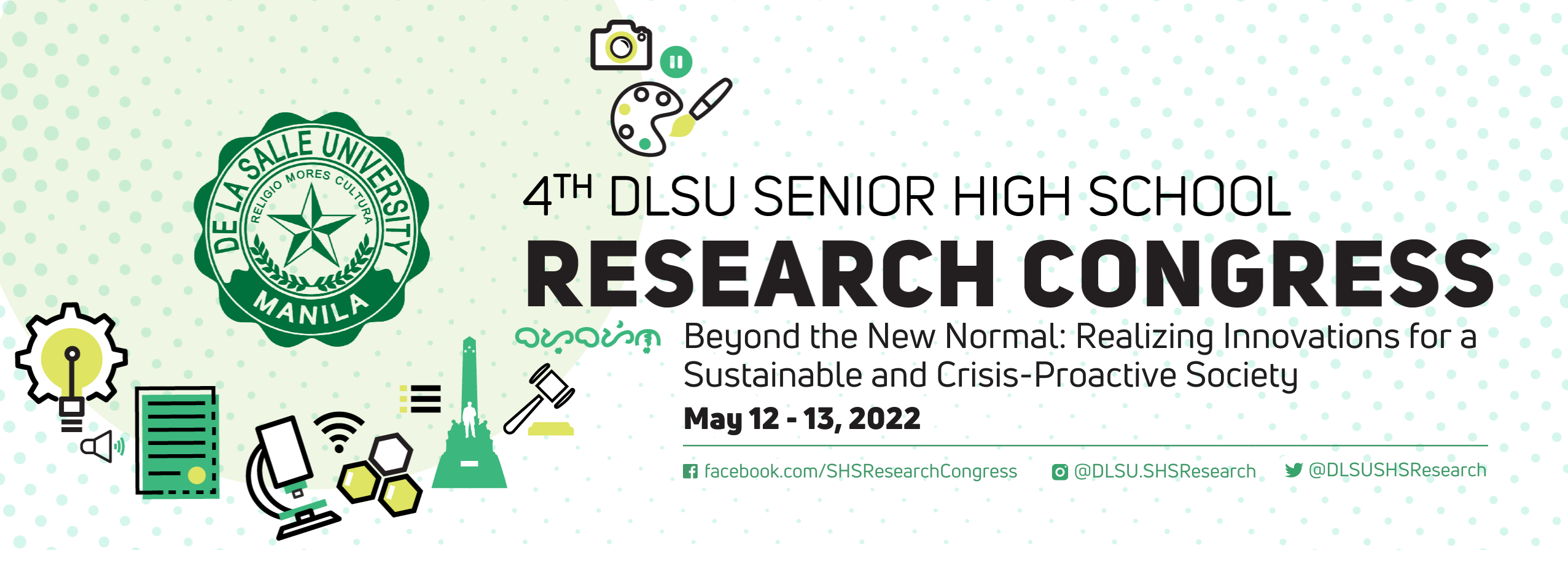Document Types
Paper Presentation
Research Theme (for Paper Presentation and Poster Presentation submissions only)
Sustainability, Environment, and Energy (SEE)
Research Advisor (Last Name, First Name, Middle Initial)
Marifel T. Camero
Start Date
13-5-2022 8:00 AM
End Date
13-5-2022 10:00 AM
Abstract/Executive Summary
The environment is depreciating because of human activities that lead to global warming. Carbon footprint is one of the causes of climate change that most humans are unaware of. This solely focuses on climate action; thus, this research aimed to determine the students' level of awareness on carbon footprint mitigation and the difference between the students' place of origin. A quantitative descriptive research design was used to interpret the questionnaires distributed to the grade 11 and 12 STEM students through google forms. The obtained data were analyzed through a weighted mean and t-test, resulting that food had the lowest weighted mean among other categories. Moreover, students from urban and rural areas showed no significant difference as to their level of awareness based on the calculated p-value of 0.95. The overall mean implied that the students are very aware of carbon footprint mitigation. The found data provided a basis for recommendations on a possible intervention for their carbon footprint mitigation regarding food consumption, while future researchers can enhance their knowledge on carbon footprint, mainly in transportation and to focus on adult respondents.
Keywords
environment; global warming; carbon footprint; mitigation; level of awareness
Awareness of Students’ Carbon Footprint Mitigation at Home
The environment is depreciating because of human activities that lead to global warming. Carbon footprint is one of the causes of climate change that most humans are unaware of. This solely focuses on climate action; thus, this research aimed to determine the students' level of awareness on carbon footprint mitigation and the difference between the students' place of origin. A quantitative descriptive research design was used to interpret the questionnaires distributed to the grade 11 and 12 STEM students through google forms. The obtained data were analyzed through a weighted mean and t-test, resulting that food had the lowest weighted mean among other categories. Moreover, students from urban and rural areas showed no significant difference as to their level of awareness based on the calculated p-value of 0.95. The overall mean implied that the students are very aware of carbon footprint mitigation. The found data provided a basis for recommendations on a possible intervention for their carbon footprint mitigation regarding food consumption, while future researchers can enhance their knowledge on carbon footprint, mainly in transportation and to focus on adult respondents.


